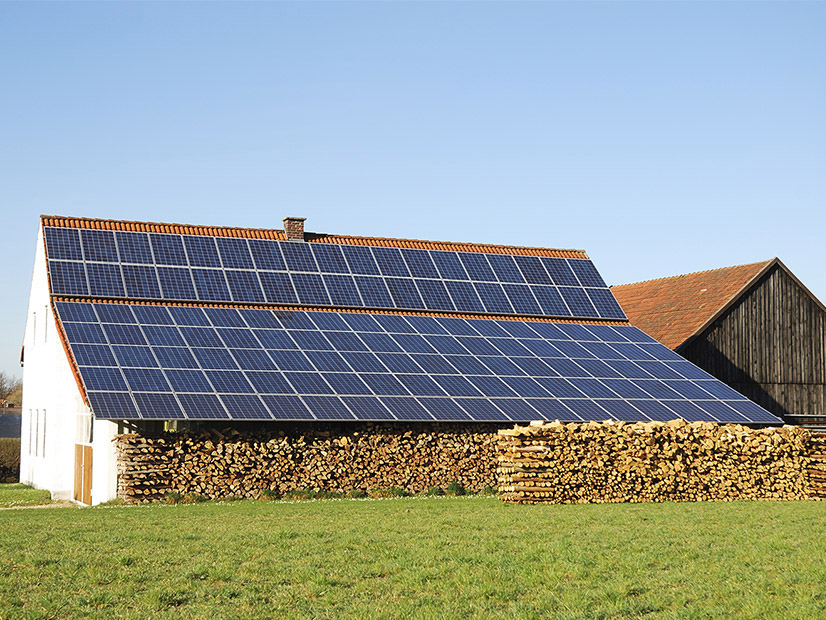
The Massachusetts Department of Agricultural Resources (DAR) has funded $2.9 million worth of climate change-related projects to help farms across the state combat climate change.
Some farmers and conservation groups are concerned about losing high-quality farmland to solar development, which would hamper local food production. Industrial agriculture is one of the largest sources of greenhouse gasses globally, and local food systems cut back on emissions by avoiding long-distance food transport. (See Large-scale Solar is Cropping Up in Small, Rural Mass. Towns).
But Will Conklin, executive director of the education nonprofit Greenagers in South Egremont, said the grant use cases are more nuanced.
His organization was the recipient of a $49,000 grant from DAR’s energy funding to install a 12.77-kW solar panel system on the roof of an old sheep barn, which will be used to power Greenager’s offices, its woodworking shop for students and irrigation for a new farmstead.
Conklin is working with preservation organization Historic New England to place the panels in a sensitive way on the low-slung, one-story barn.
The organization Greenagers introduces young people to various trades that help communities “live more responsibly on earth,” he said, and local students will be able to watch the solar panel installation and help where appropriate.
“I think there are a lot of opportunities for that in the area,” Conklin told NetZero Insider.
If there is a structure available on the farm property, that should be the priority for solar placement, he said. Dual-use solar “should be part of the conversation with farms,” though grazing leaves farmers in New England with a “narrow band of usage,” Conklin said. “I don’t know any farmers that would allow solar panels on land with good soil.”
For Greenagers, the solar panel installation will be a source of clean energy for its farmstead project, as well as a community source of energy in case of a major weather event.
“There’s not a cut and dry answer,” he said, “but we need to be looking at local solutions.”
Several other farms, including the nonprofit Newton Community Farm (NCF) in Middlesex County, received state grants for solar array installations.
DAR is contributing 80% of the costs of the solar installation on the roof of a barn, which will provide almost all the energy it needs to operate.
The array of 30 panels — at 10.1 kW — will be connected to the grid and backed up with batteries.
The project will help the farm save money on its electric bills and help Newton, Mass., meet its climate goals and overall mission, said Sue Bottino, executive director of NCF, the last working farm in the city. The grant will also help ensure NCF’s long-term sustainability, Bottino said.
The farm produces 500,000 pounds of produce each year, which is sold to community members and donated to kitchens that serve those struggling to afford food.
“We hope it will be a model for other farms in the state,” Bottino said.


